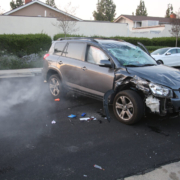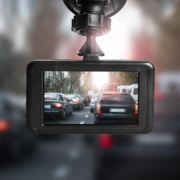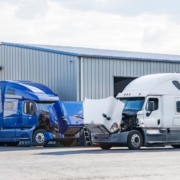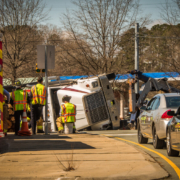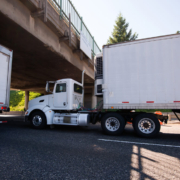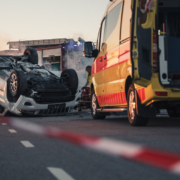The Importance of a Spoliation Letter in Truck Accident Cases
One of the few silver linings of a truck accident is that there is a huge array of evidence available to victims. No one ever wants to be involved in an accident—but if you are, you at least want enough evidence to prove your case and be made whole. Your attorney may send out something called a spoliation letter, often an important part of personal injury cases in Charleston.
Learn more about spoliation letters, their role in your case, and how they may affect the outcome. When you’re ready to fight for the compensation you deserve, call Bailey Javins & Carter at 800-497-0234.
What a Spoliation Letter Is
A spoliation letter is often referred to as a preservation of evidence letter. It’s a legal document that asks another party involved in a case to preserve specific pieces of evidence. Note that it’s not a request—the recipient is legally obligated to preserve evidence relevant to the case in question. Without a spoliation letter, you risk having important evidence “go missing”—especially if it’s damning to the other party’s case.
A spoliation letter contains several elements. It identifies both the sender and recipient, as well as their role in the case. The letter should include some information about the case and the issues that are being disputed.
The letter instructs the recipient to preserve specific evidence, such as documents, objects, and electronic data. The letter goes into detail on how the evidence should be preserved so that its integrity is protected. From there, it may detail the legal ramifications of failing to preserve the evidence in question or actively destroying it. The letter generally concludes with a request for acknowledgment of receipt.
Preserving Evidence in a Truck Accident Claim
Truck accident claims in Charleston involve a unique selection of evidence that can be incredibly important to your claim. Driver logs, for example, include information on a driver’s hours of service, when they took breaks, when and if they conducted inspections, and how long they were off between hauls. Data from a truck’s electronic logging device is also essential in many accident claims, holding data on the driver’s speed, hours of service, braking patterns, and steering behavior.
It’s obvious why these types of evidence must be preserved. Imagine a case in which a truck driver falls asleep and crosses the median, striking a car and killing the occupants. An unethical trucking company executive could rush to falsify the driver logs, destroy the black box data so they can claim that it “malfunctioned,” and otherwise get rid of evidence that destroys their case. A spoliation letter puts the other party on notice that you know of the existence of the evidence and that you fully expect it to be maintained and made available to you.
What happens if the other party ignores your requests or fails to fulfill them? There will likely be legal consequences, such as sanctions or assumptions that the destroyed evidence is beneficial to your case.
Legal Implications of Failing to Send a Spoliation Letter
It is crucial to get a spoliation letter sent out promptly after an accident. Remember that truck accidents are considerably more expensive than other types of collisions. On top of that, trucks carry much larger insurance policies than passenger vehicles, so there is a lot of money at stake. You only have a limited amount of time to send a spoliation letter and stop the other party from destroying or “losing” important evidence.
Of course, if a party is determined to destroy evidence, a letter will not stop them. However, a spoliation letter can do a lot to discourage a trucking company or truck driver from interfering in a case by destroying evidence. With a spoliation letter, they know that they will be held accountable for any evidence they do not save.
Injured in a Collision? Call Bailey Javins & Carter
The sooner you connect with a Charleston truck accident attorney after a crash, the sooner you can rest easy knowing your case is in good hands. We’re ready to get started and fight for you. Reach out online or give our team a call at 800-497-0234 to schedule your free consultation.


